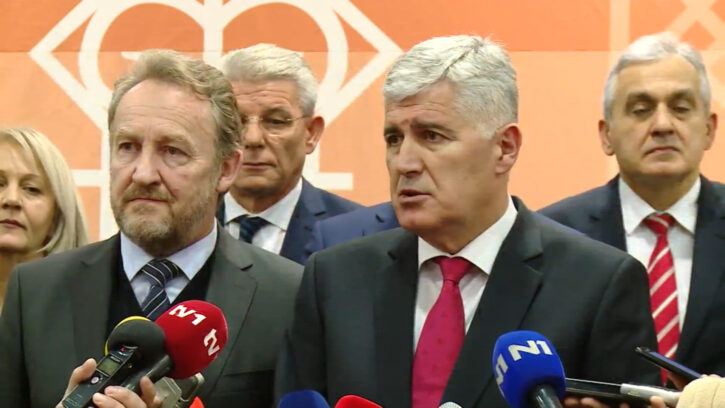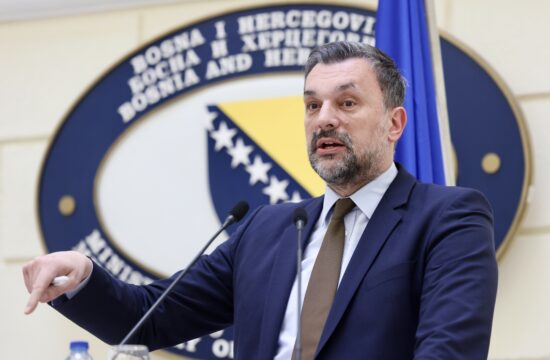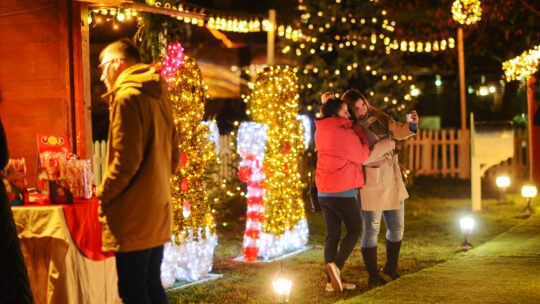
Two political rivals in the Bosniak-Croat Federation (FBiH) met on Friday in the southern city of Mostar to discuss how they could cooperate during the implementation of the October election results.
The FBiH is one of Bosnia’s two semi-autonomous entities, and it is populated mostly by Bosniaks and Bosnian Croats.
The leaders of the two national parties, the Bosniak ethnic-oriented Party for Democratic Action (SDA) and the Bosnian Croat ethnic-oriented Croat Democratic Union (HDZ), said they spoke about the formation of a government and what the priorities will be.
“We want to talk with our Bosniak partners about the European perspective of this region,” said HDZ leader Dragan Covic.
He emphasised that the first issue of a reform agenda or a European agenda was the change of the country’s Election Law, an issue the party has been insisting on for years.
The changes to the law which the HDZ prefers were vehemently rejected by the SDA so far and Covic complained that because of it, he was “throughout the past year turned into someone who hates the Muslim world,” saying that he repeatedly publicly stated that Muslims were his brothers.
The HDZ had previously said that it was ready to talk about the formation of the government with its Bosniak partners but left-leaning parties that won a significant number of seats in the Parliament replied that they do not consider themselves to be Bosniak, but rather Bosnian parties representing all citizens and not just one ethnic group.
The leader of the SDA, Bakir Izetbegovic, said after the meeting that the two parties are obligated to stay together.
“The HDZ and the SDA are coalition partners for a long time. They represent two peoples in Bosnia and Herzegovina. The SDA has won the support of a relative majority of Bosniaks and the HDZ the absolute majority of Croats,” he said, adding, “We have to stick together.”
Izetbegovic explained that the SDA and the HDZ are together keeping the country stable and that during their reign in the previous mandate, 70,000 jobs were created, progress on Bosnia’s path toward NATO and EU membership was negotiated and the Federation has met the conditions to be turned into the “biggest construction site in the Balkans.”
“This already happened. These are not promises,” Izetbegovic said.
“Peace, stability and security in Bosnia and Herzegovina and the Balkans. Reforms on the path toward the EU (…) and mass construction,” he listed.
“This can create a positive spiral. This could be the best mandate if we are smart and mature enough,” he added.




